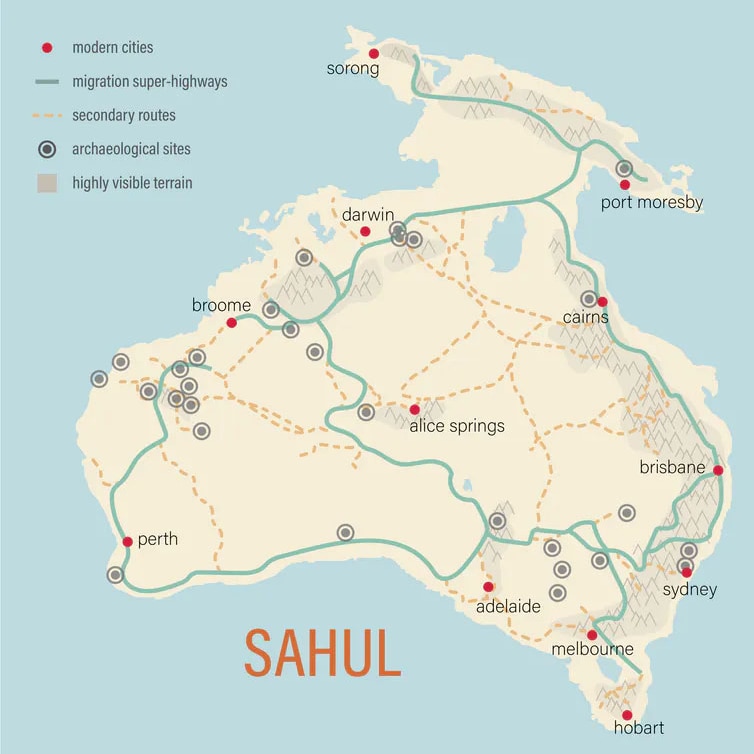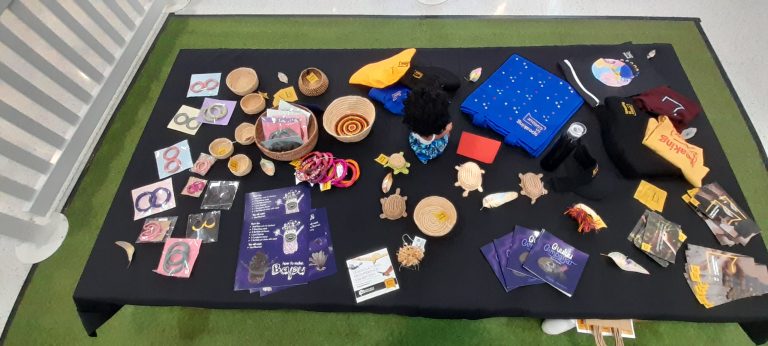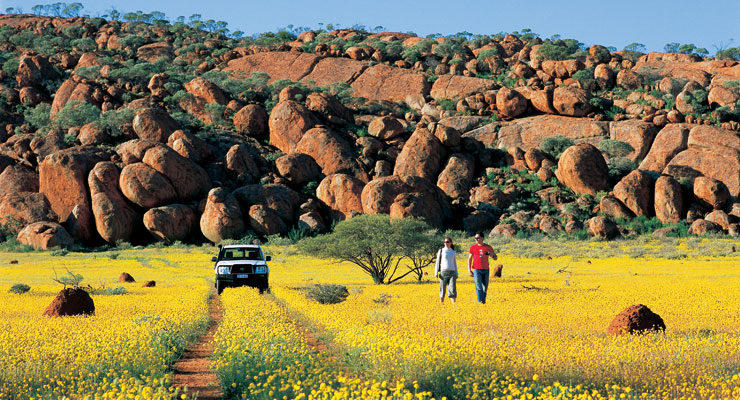A map showing the migration routes in the ancient mega-continent of Sahul.(Supplied)
Dana Morse (ABC News) reports that: ‘New research from the Australian Research Council Centre of Excellence for Australian Biodiversity and Heritage shows the paths that were likely trodden by the ancient Aboriginal people as they moved across the continent from the Kimberley to Tasmania.’
The models take data from archaeologists, anthropologists, ecologists, geneticists, climatologists, geomorphologists, and hydrologists. Crunching the information, Professor Corey Bradshaw and fellow researchers came up with the most likely routes around the country. They dubbed them: ‘Super-highways’ for super movers
“You know, people probably made it from out of Africa…within 10–15 thousand years and then bam, they were in Australia.
“That’s just remarkable considering that the technology that was available at the time, and I’m talking settlement, not just walkabouts here and there.”
The super-highways bear striking similarities to Australia’s current highways and stock routes, and Professor Bradshaw said there was a good reason why.
“The super-highways that came out of some of the models actually seem to match up a lot of the old stock routes and the Aboriginal trade lines that we know from, say, the 19th century.
“A lot of the European explorers — those that were smart enough to talk to the local people about which way to go and how to survive, I imagine that those would have passed down for a long time.”
……………………………………………………………………………………………………………….
A word about words
We are being encouraged to bring Aboriginal words into our everyday conversations. Here’s five for starters …
Wontakalowa – This was said in passing another person to greet and ask “which way?” at the same time but also commonly used as a greeting.
Kaayi – was believed to be a call for attention.
Wandakalua – a word used for “Welcome”
Nginowa – Goodbye / Farewell
Nunda kumba kumba – until next time or until we meet again.
Source: Miromaa Aboriginal Language & Technology Centre, Hamilton
MMM … Issue 23, October 2021



